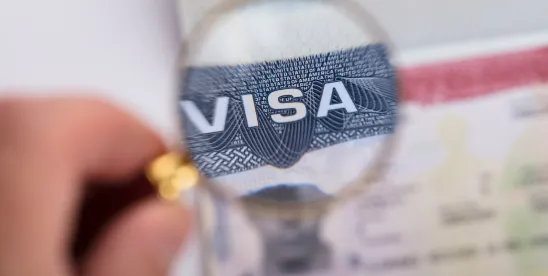On April 1, 2024, U.S. Citizenship and Immigration Services (USCIS) began requiring certain I-129 petitions, historically filed at service centers, to instead be filed at its various lockbox facilities. USCIS confirmed on social media that it was experiencing delays in issuing receipt notices for petitions filed at lockbox facilities.
Quick Hits
- Beginning April 1, 2024, USCIS service centers stopped accepting paper-filed I-129 petitions requesting H-1B and H-1B1 classification, instead requiring petitioners to file at designated lockbox facilities.
- As a result, the filing volume at USCIS lockboxes has increased, and USCIS has now confirmed that it is experiencing delays in issuing receipt notices.
- Employers may wish to consider these delays when preparing time-sensitive filings that require a receipt notice for other benefits or to meet other requirements.
In conjunction with new filing fees made effective on April 1, 2024, through USCIS’s recent final rule, on April 1 USCIS also began requiring petitioners filing H-1B and H-1B1 petitions on Form I-129, Petition for a Nonimmigrant Worker, to file with designated lockbox facilities instead of directly with its service centers.
As a result of this change, USCIS informed stakeholders through its social media channels that it was experiencing delays in issuing receipt notices for petitions filed at its lockbox facilities. Specifically, USCIS noted that it might take between ten and fourteen calendar days to receive a receipt notice.
Notably, USCIS’s lockbox facilities are the designated filing locations for forms and benefit requests beyond the recently added H-1B and H-1B1 classifications, including some petitions or applications using Form I-140, Immigrant Petition for Alien Workers; Form I-130, Petition for Alien Relative; Form I-485, Application to Register Permanent Residence or Adjust Status (commonly referred to as the “green card” application); Form I-765, Application for Employment Authorization (commonly referred to as the “EAD card”); and Form I-131, Application for Travel Document (also used for advance parole).
Key Takeaways
Employers filing petitions at USCIS lockbox facilities may wish to consider USCIS’s receipt notice delays when preparing time-sensitive filings that require receipt notices for other benefits or to meet other requirements, such as cap-gap extensions for certain eligible F-1 nonimmigrant students or driver’s license renewals in certain states.




 />i
/>i
